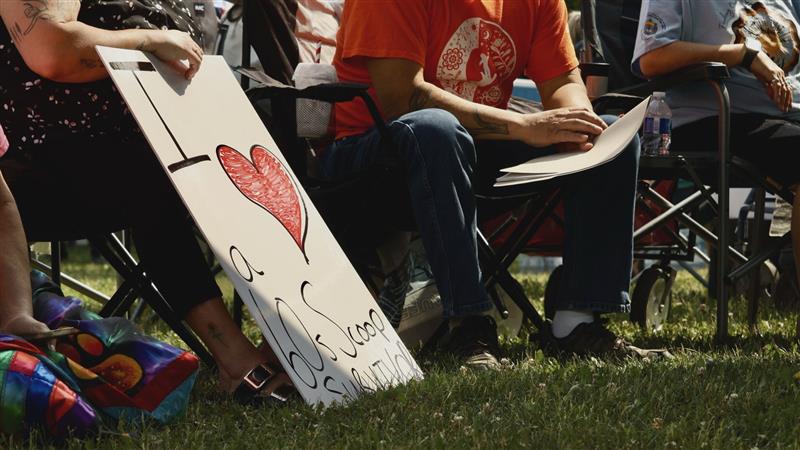10 years after Manitoba’s apology, Sixties Scoop survivors still fight for justice and reconnection

Posted June 18, 2025 7:19 pm.
Last Updated June 19, 2025 1:04 pm.
10 years after Manitoba issued a historic apology to Sixties Scoop survivors, families and advocates gathered at St. John’s Park to reflect on what healing truly looks like. Among them was a family still quietly fighting for justice — carrying a story that highlights how far the journey toward reconciliation still has to go.
Between 1951 and 1991, an estimated 30,000 Indigenous children were taken from their families and placed in non-Indigenous homes across Canada and abroad. This period, now known as the Sixties Scoop, left deep generational trauma that continues today.

Sisters Lorraine Sinclair and Cindy Monroe were among those taken. They began reconnecting with their biological family at age 18. Now in their 60s, they’ve discovered 11 relatives — nine of whom are also Sixties Scoop survivors.
But one sister remains missing from their reunified circle — still a ward of the state in Minnesota. And they’re trying to bring her home.
“The last conversation with her was us saying, ‘We’re trying to get you out of there,’” said Sinclair. “And she said, ‘Thank you, sis. If I get out, I will never come back to the U.S.’”
Because she resides in the United States, the family is afraid to visit her, fearing legal complications or further separation.
“She’s in a facility where she’s not allowed to leave,” said Monroe. “So how do we go in there and get her out? They don’t even know we’re her sisters — we just want to bring her home.”
Sixties Scoop survivor Coleen Rajotte says this case reveals how much remains unknown — including the number of survivors still scattered across borders.
“We don’t even know how many Sixties Scoop survivors are in the United States, across Canada, or outside the country. We need research,” she said.
Rajotte rejected the 2018 federal settlement’s one-time payment of $25,000, saying it didn’t reflect the depth of trauma and loss survivors have endured. She’s now calling on both the provincial and federal governments to act on recommendations that survivors put forward more than a decade ago.
“I call upon the provincial and federal governments to do more. We need repatriation programs, more support programs — and we all need to work together on that,” said Rajotte.
Survivor Joe Lambert’s story reflects another layer of disconnection. Adopted at age two, he only recently discovered he had a family. Just 10 days ago, he met his biological sister for the first time. On Wednesday, he officially became a Métis member.
“When you grow up alone, you think that’s how your life is going to end,” Lambert said. “But now it’s different. There are other family members I haven’t met yet, and I’m looking forward to finding them.”








